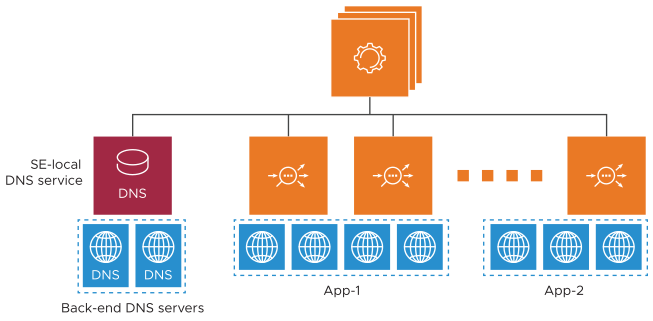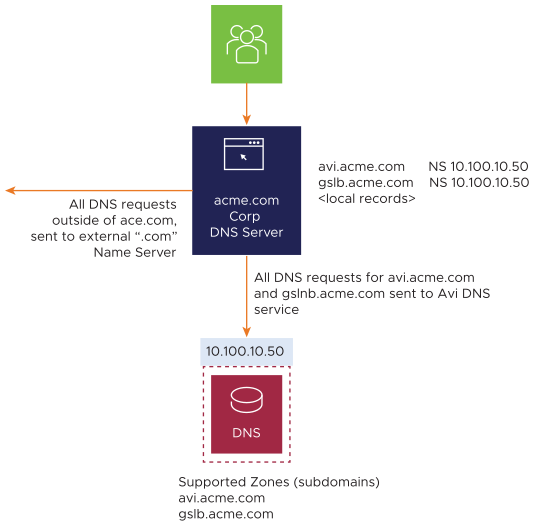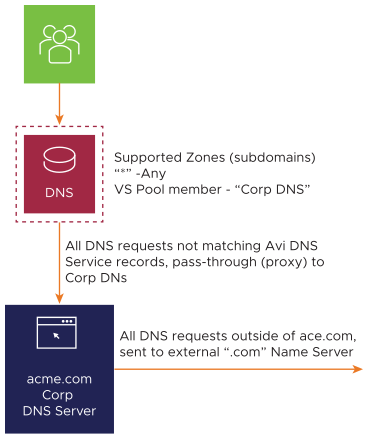The Avi Load Balancer DNS virtual service is a generic DNS infrastructure that can implement the following functionality.
The Avi Load Balancer DNS virtual service primarily implements the following functionality:
DNS Load Balancing
Hosting Manual or Static DNS Entries
Virtual Service IP Address DNS Hosting
Hosting GSLB Service DNS Entries
The Avi Load Balancer supports:
Static and virtual service AAAA records and pass-through/ load-balancing of IPv6 queries.
DNS TXT (text) record and MX (mail exchanger) record.
Avi Load Balancer DNS as a Virtual Service
Avi Load Balancer DNS runs a virtual service with System-DNS application profile type and a network profile using per-packet load balancing.
A DNS service is represented in green and it is hosted on the leftmost Service Engine as shown in the image below. If a matching entry is found then, the DNS virtual service responds to DNS queries. If a matching entry is not found and if the pool members are configured then the DNS virtual service forwards the request to the backend DNS pool servers (represented in blue).
DNS virtual service supports A/A, A/S, and N+M with health monitoring support added for DNS virtual service configured in active/ standby mode.
Avi Load Balancer can be configured with more than one DNS virtual service.

A Avi Load Balancer DNS virtual service acts as an authoritative DNS server for one or more subdomains (zones), and all analytics and client logs are supported.
Avi Load Balancer Deployment Scenario for Authorative Name Server for a Subdomain (Zone)
In this scenario, the corporate name server delegates one or more subdomains to the Avi Load Balancer DNS service, which in turn acts as an authoritative DNS server for them. In the example shown below, avi.acme.com and gslb.acme.com are the subdomains. Typically, the corporate name server will have an NS record pointing to the Avi Load Balancer DNS service (10.100.10.50). Client queries for these subdomains are sent directly to Avi Load Balancer, whereas all DNS requests outside of acme.com are instead sent to the external “.com” name server.

Avi Load Balancer Deployment Scenario for Primary Name Server for a Domain
